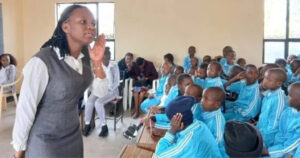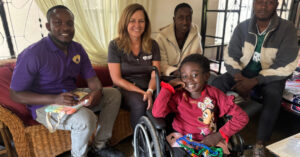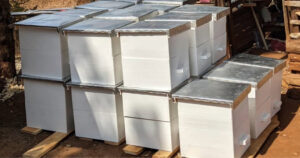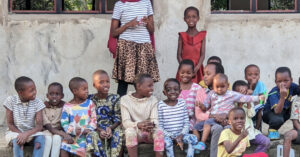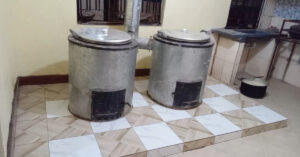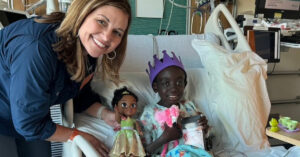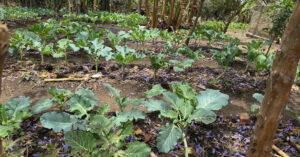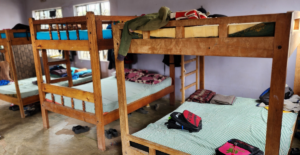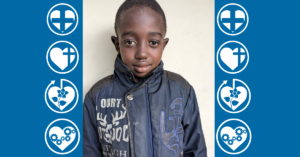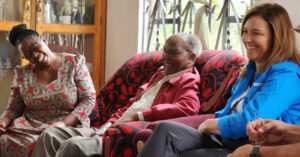Matonyok Children’s Home, Arusha, Tanzania (50 + Children)
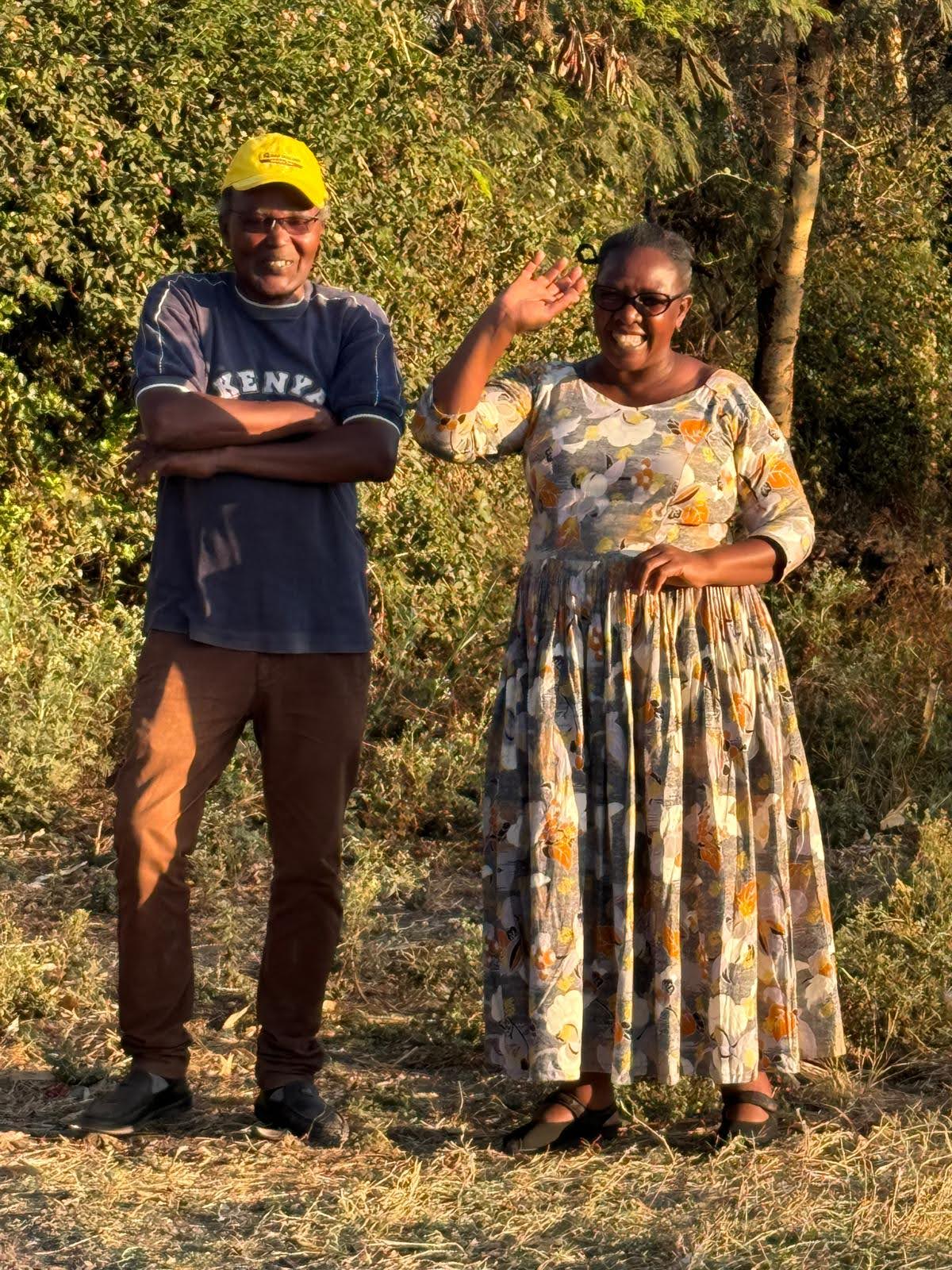
Meet Founder and Executive Director, Emmy Sitayo and Co-Founder Ndemno Sitayo
Emmy: In the early 1970’s Emmy was the only girl in her Maasai village to receive an education. Educated to be a nurse, during her career working with special needs children, Emmy regularly came across children being abandoned either as a result of their disability or social/economic family issues. She could not abandon these children in need. So, she kept bringing them home and, as a result, Matonyok Children’s Home was born into existence in 2007.
Ndemno: The son of a German missionary, Ndemno went to school as a child and ultimately became a District Accountant for the Tanzania Electric Company. In 1988, he joined Music College and in 1992 he traveled to Germany for a studies tour. While on the tour he visited several centers for the handicapped and older people and seriously studied how children’s rights are violated. When he returned home to Arusha, he became involved with Matonyok Children’s Home.
Matonyok Children’s Home
Matonyok in Maasai means "make the effort". The vision of Directors Emmy and Ndemno is to ensure children from difficult circumstances-- disabled orphans, neglected street children and children whose parents have died due to HIV/AIDS-- should be given the opportunity to achieve a greater degree of self- reliance and social integration in a dignified manner. These are the children of Matonyok.
Education is a priority, and the home engages their surrounding community to help provide their children with a basic level of education. As possible, they help families who can’t afford the cost of school fees. Day care is offered to keep children off the streets, safe and educated.
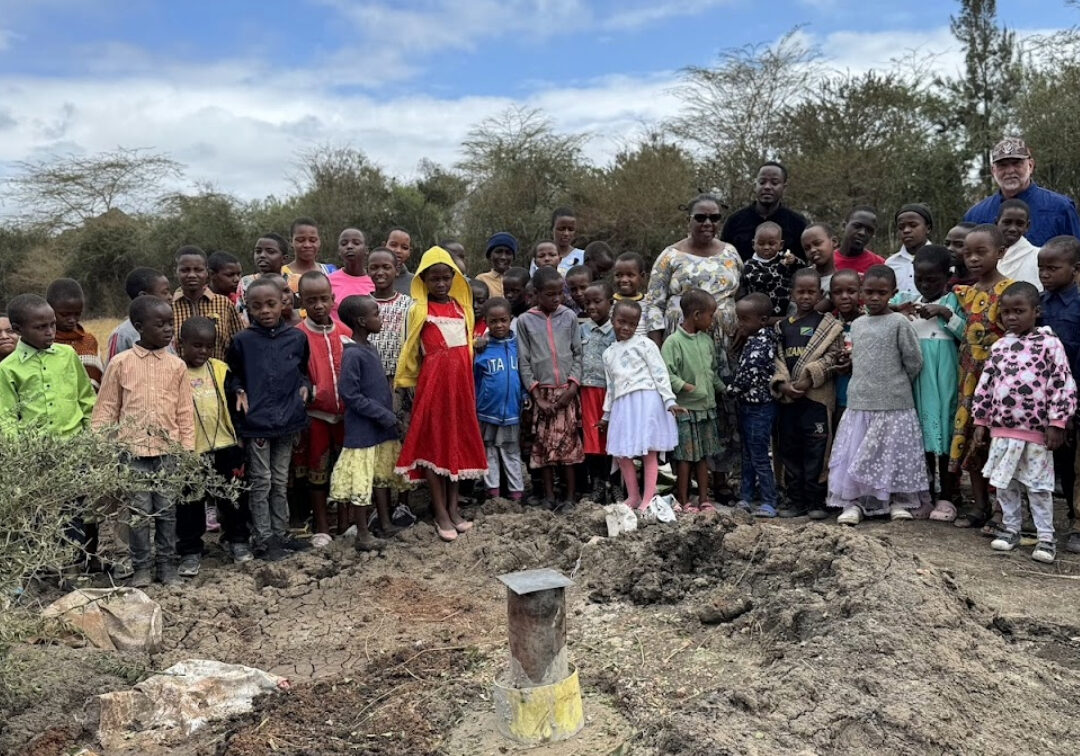
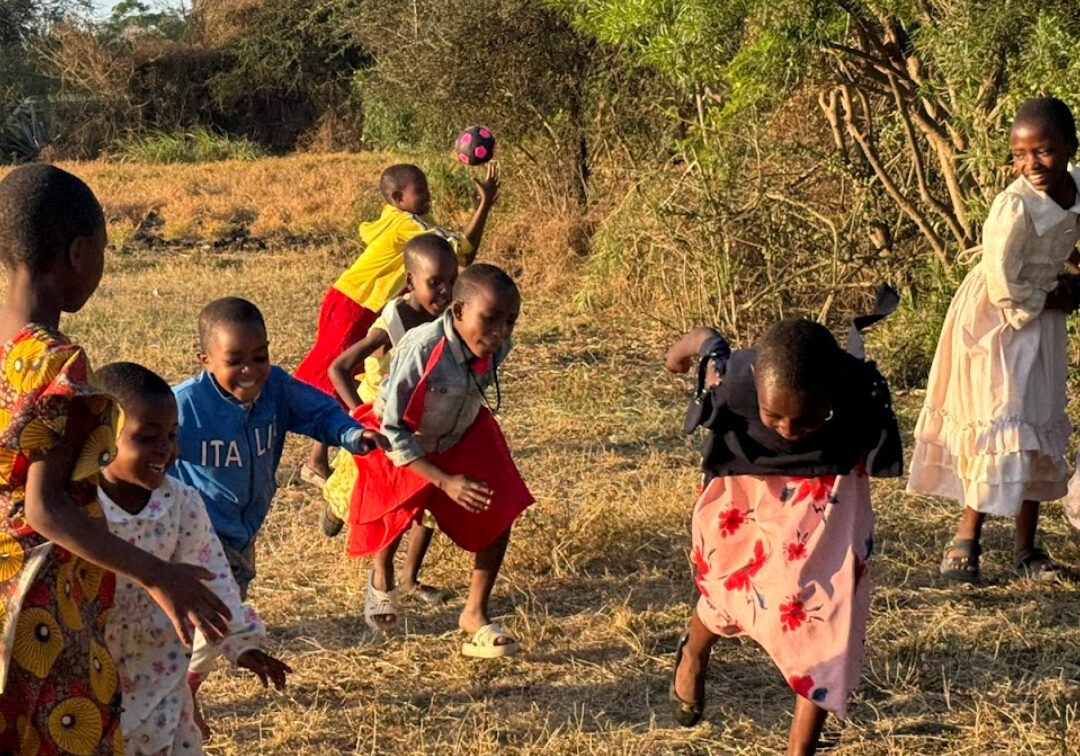
Fifty-four children currently live at the home. Over 100 children are enrolled and attend the small on campus school. Eight children have aged out and are attending vocational school. Overall, 30 children have been reintegrated with family members and 5 children have been adopted.
Currently Matonyok relies on financial support from the community and HOHI to cover food, housing, education, health and staff costs, though there are many efforts underway to become self-sufficient. Their sustainability efforts currently generate 14% of their monthly overhead.
How Your Giving Helps:
- Creates a Learning Lab at the church, offering educational resources and academic support for foster children
- A Playground where children can experience joy, play, and development. Help us bring play to the lives of these kids!
How You Can Help
Our Blogs About Matonyok Children's Home
Back to School at Matonyok Children’s Home: “Make the Effort” in Arusha, Tanzania
In the Maasai language, “Matonyok” means “make the effort.” That phrase becomes especially powerful at the start of a new school year, when pencils are sharpened, uniforms are straightened, and children line up-many of them carrying a story that could have easily kept them from ever sitting in a classroom.…
URGENT NEED: LIVE KIDNEY DONOR FOR NEEMA
Neema is a precious and brave young lady currently in California, waiting on the deceased donor list for a kidney transplant. WHO IS NEEMA? She’s a brave and bright young girl in urgent need of a kidney transplant. She has been in the US getting stronger physically under the incredible…
Sweet Success in the Making: Matonyok Children’s Home Beekeeping Project Takes Flight
In Arusha Tanzania, the buzz of progress is growing louder. The Matonyok Children’s Home has launched a sustainable beekeeping project that will helpt to transform lives – economically, environmentally, and educationally. This initiative is more than just honey production; it’s an innovative model of sustainability that supports the home’s operations, promotes biodiversity, and…
Building Stronger Futures Through Training and Collaboration
At Matonyok Children’s Home, we believe that every opportunity to learn and grow-whether for our children or our staff-strengthens the foundation of hope we are building together. Over the past months, we have been blessed with several key visits from partner organizations who share our vision for transformation. DUSAFO Organization…
Empower Sustainable Cooking & Change Lives at Matonyok Children’s Home
One of the current issues the children and staff at Matonyok Children’s Home are facing is the high cost of cooking fuel, limited cooking surfaces, and a smoke-filled kitchen. The home relies on firewood and charcoal for cooking, which is expensive, and the air pollution is harmful to the staff and…
A Call to Action and Hope for Neema: A Life-Saving Mission
At the Matonyok Children’s Home in Arusha, Tanzania, a courageous 13-year-old named Neema is battling the severe challenges of HIV-AIDS passed to her at birth. Last October, her health took a drastic turn, leaving her unresponsive and in dire need of ICU care and dialysis-treatments far beyond the means of…
Food Sustainability at Mantonyok—Engaging in Agricultural Practices
Matonyok Children’s Home is making a profound impact in the lives of orphaned children. The home offers them not only a place to call home but also access to education and holistic development. Recently they utilized 2 hectares of land in the immediate vicinity of the home for maize and…
Help Needed to Provide New Dormitory for Matonyok’s Boys
At Matonyok Children’s Home, our commitment to providing a nurturing environment for orphaned and vulnerable children in Tanzania is unwavering. We believe in offering not just care but also quality education to ensure these children have the foundation they deserve. Join us in a crucial mission as we embark on…
Neema’s Journey Continues
In the heart of Arusha, Tanzania, at the Matonyok Children’s Home, a story of resilience and hope unfolds. It’s the story of Neema, a brave 13-year-old girl battling HIV-AIDS. Last October, her condition deteriorated drastically, leaving her unresponsive and in desperate need of ICU care. The situation seemed dire, with…
‘God, give me energy to do this until the end of my life.’ – Meet Emmy: ‘Mami’ to 57 children in Tanzania
By Laura J. Gates You could say Emmy Sitayo opened the Matonyok Children’s Home in Tanzania “by accident.” She was working with disabled children and just kept bringing them home. In her community where resources are scarce, children with special needs are often seen as a burden. Tanzania is among…
OUR MATONYOK GALLERY
About the Country of Tanzania
The largest country in East Africa, and one of the continent’s most politically stable, Tanzania is home to Mt. Kilimanjaro, Africa’s highest peak. The city of Arusha is considered the gateway to Mt. Kilimanjaro and the safari capital of Tanzania, close to numerous national parks including Serengeti National Park.
Just over 60 million in population, Tanzanian children represent 51% of the population. The median age--18 years. Among the children, there are an estimated 1,300,000 orphans, having lost one or both parents to HIV disease.
Tanzania is among the poorest 15 nations in the world. More than two-thirds of the population live below the internationally recognized income poverty line of $1.25 US dollars/day. Its economy is heavily based on agriculture accounting for 50% of the employed workforce. Poor access to and knowledge about healthcare, insufficient nutrition, food insecurity, a lack of education, a high rural population and agricultural issues all play a role in Tanzania's poverty.
A Tanzanian child faces many challenges: mortality, malnutrition, lack of education and early marriage. Approximately 5% die before reaching 5 years of age, 32% suffer stunting from malnutrition, 40% do not attend school, and 24% are child workers.

